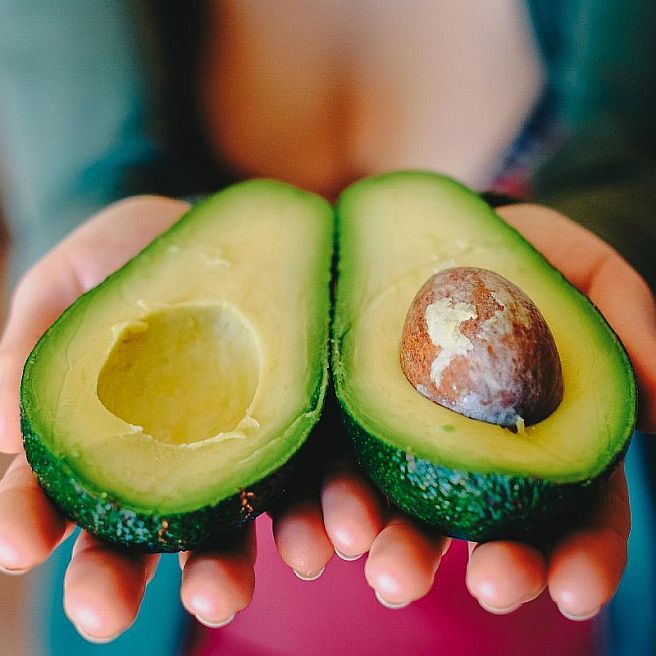There have been many diets over the years that have promised weight loss and general improvements in body composition, but how many of them actually work – and at what cost?
The idea behind most diets is to maintain what’s called a caloric deficit. A caloric deficit is eating fewer total calories per day than your body requires in order to function normally.
Most people require around 2,000 calories daily in order to maintain weight. A traditional diet asks you to calorically restrict your intake about 20%, which works out to about 1,600 calories daily. This type of diet only focuses on calories, rather than the macronutrients each food provides.
Of course, this method will work for many people, but you’ll be challenged when you run into a plateau in your weight loss. For years, people have been experimenting with the use of high-fat diets and the potential benefits they can provide to weight loss – and fat loss.
How could a high-fat diet help me lose weight and more fat?
It seems counter-intuitive, yet, a high fat diet can stimulate your body into a state of ketosis – which is very effective at promoting fat loss and weight loss.
What is Ketosis?
On a fundamental level, ketosis is a metabolic state. Ketosis is a metabolic state, and as such it alters the way our digestive and absorption system works. Our body can draw energy from various sources when needed, and if given the option, it will choose glucose (from carbohydrates). But when we don’t have enough glucose available, our body will source other nutrients – namely, ketones.
Ketosis is a metabolic state that utilizes ketones as fuel when glucose levels are very low.
Eating a low-carb diet may enable you to enter ketosis, effectively burning more fat through your metabolic state.
How Do I Achieve Ketosis?
Your body will enter ketosis any time you fast for a long duration. Many experts believe that runners actually enter a state of ketosis during a long run, especially if they’ve been carb-cycling.
In addition to fasting and exercise, ketosis can also be entered when you’re eating very few carbohydrates – less than 15% of your daily calories, as your body will source its fuel from the fat your intake rather than the restricted form of carbohydrates.
Does Ketosis Really Help With Fat Loss?
With any diet, there is always speculation and instances where it may not work. With that said, the ketogenic diet, or a low-carb diet, has been shown to be very effective in promoting weight loss and fat loss.
Recent research has even shown that, along with the ability to promote fat loss and weight loss, a keto diet also decreases the level of triglycerides, LDL cholesterol, and blood glucose. It increases the level of HDL cholesterol (the “good” cholesterol). All of these effects are essential to your overall health.
Are There Any Downsides?
There’s always a downside to any diet that doesn’t favor balance.
We know that a high-fat diet can be very effective in promoting weight loss and total fat loss, but it may actually be dangerous for those who are diabetic or have pre-existing heart conditions.
You may also lag behind when it comes to certain types of performance. Fat is not a quick source of fuel, so some people, like powerlifters and cross fitters, will want to keep fast-metabolizing carbohydrates in their diet in order to perform at their best.
Because the keto diet is so restrictive, health experts say it’s not an appropriate plan to follow long-term. (Even Axe says it’s best done for 30 to 90 days, followed by a more sustainable diet plan.) But the problem with that, says Kizer, is that most people will regain a lot of the weight they lost as soon as they go back on carbs.
Here are some more negative aspects of ketosis:
- The “keto flu” when some people just feel sick when they start ketosis. This is believed to be caused by your body trying to adjust to using fat instead of carbs.
- Some people report having diarrhea on a keto regimen. This is called keto-diarrhea.
- Ketoacidosis – for those with diabetes type 1 and 2 can be dangerous if not kept in check.
- Keto-breath – which to an extension can be a sign of ketoacidosis.
- Not sustainable – Because of the stringent food restrictions, many find the keto diet hard to stick to.
Balance Your Keto Lifestyle
Long-term research on the keto diet hasn’t found any major negative health side effects to healthy populations. In contrast, research has even indicated that this diet does promote weight loss and benefits your internal health. Remember, however, that balance in your life is essential. It’s important to avoid thinking that just because you can eat high-fat foods that you should go around having greasy burgers all day.
The purpose of the keto diet is to achieve a state of ketosis with whole foods, healthy oils, lean meats, nuts, and dark greens.
There’s no doubt about it – healthy eating leads to a healthy lifestyle resulting in a healthy weight, greater vitality, and increased satisfaction in life.
